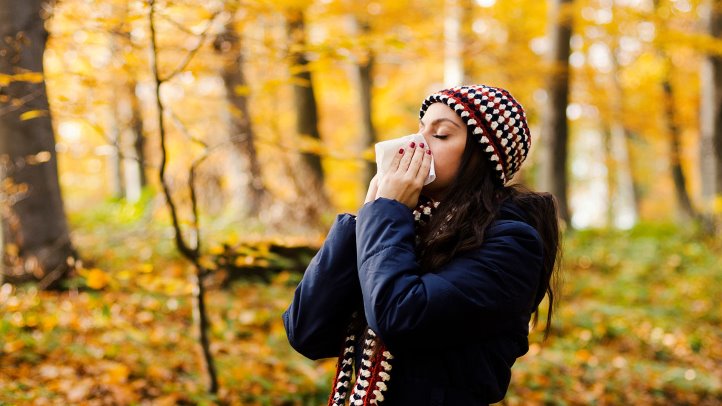Allergens are all around us, and if you’re one of the millions of Americans who suffer from seasonal allergies, you know all too well about the sneezing, runny nose, and itchy eyes that allergies cause. But, allergies cause much more than cold-like symptoms. In fact, if left untreated, allergies can cause chronic fatigue, moodiness, and even decreased brain function.
While we may not be able to control Mother Nature and the amount of pollen that’s produced season to season, there are ways you can control the side effects of allergies. If you’re wondering how to control seasonal allergies symptoms, keep reading for 5 must-follow tips to make life a little more bearable!
1. Reduce Exposure to Allergy Triggers
One of the best ways to reduce the sneezing, coughing and itching caused by seasonal allergies is to minimize your exposure to allergy triggers. If you’re allergic to pollen, you may want to stay indoors on days when it’s windy and dry. The ideal time to go outdoors is after it rains, which clears pollen from the air.
If you must go outside on a dry or windy day, be sure to remove the clothes you wore outdoor and shower to remove pollen that has settled onto your hair and skin. When washing clothes never hang them outdoors are pollen tends to stick to fabric, especially cotton.
When possible, have someone else take care of outdoor chores such as weed pulling, mowing the lawn, and gardening. These activities stir up allergens and can make symptoms even worse. If you’re unable to delegate these tasks, always wear a pollen mask.
2. Minimize Allergens in Indoor Air
There’s no way to eliminate all allergens from the air inside of your home. While you may be able to reduce the amount of pollen that enters, there are other indoor allergens to deal with such as mold, dust, mildew, and pet dander.
On hot days, avoid opening windows and doors to create a draft. Instead, use the air conditioning in your home. You’ll want to also use your car’s air conditioning when driving to prevent pollen from entering via a cracked window.
When running your home’s HVAC system, ensure that the filter is replaced often; otherwise build-up allergens will make their way into the air through forced air from the system. To greatly reduce the number of allergens that enter your home, use a HEPA or MERV filter. You may also want to use a portable HEPA filter in areas in your home that you frequent most often, such as your bedroom.
It’s also important to clean your home often, especially during warmer seasons when pollen counts are highest. Use a duster to get rid of pollen and other debris that can cause allergy symptoms. Vacuum carpet and other surfaces at least once a week. Be sure to replace the HEPA filter in your vacuum and other appliances to keep them working as efficiently as possible in getting rid of allergens.
3. Be in the Know About Pollen Counts
Pollen levels change from day-to-day and knowing what the levels are can help you to reduce your exposure. On the days when pollen levels are high, you’ll want to take allergy medications to nip symptoms in the bud. Treating symptoms before they occur is an effective way of keeping sneezing, itchy eyes, and coughing at bay. You can quickly find information about daily pollen levels by checking the weather online, on the TV, or on the radio.
As a precaution, on high pollen days, you’ll also want to close all doors and windows to minimize the amount of pollen that enters your home. Avoid outdoor activities during the morning hours as this is when pollen counts are the highest.
4. Treat the Symptoms With Medication
Seasonal allergies and the symptoms they cause are never pleasant, but thankfully there are a wide range of non-prescription medications that can be used to ease symptoms.
Oral antihistamines are used to relieve itching, runny nose, sneezing, and watery eyes. Common oral antihistamines include Allegra, Zyrtec, Benadryl, and Claritin. These medications use different active ingredients, namely loratadine, fexofenadine, and cetirizine to treat symptoms. If one medication isn’t working, try another brand that uses a different active ingredient.
Another medication option is to take an oral decongestant. Seasonal allergies are known for making your sinuses extremely stuffy. Afrinol and Sudafed are common brands used. You will also find decongestants in nasal spray form, including Neo-Synephrine and Afrin.
You may find that combining antihistamines and decongestant is the best way to minimize seasonal allergy symptoms. There are also non-medicinal methods of treating allergy symptoms including:
- A sinus rinse
- Acupuncture
- Herbal extracts (shrub butterbur and spirulina)
Conclusion
Seasonal allergy symptoms can be unbearable. Be sure to keep these four options in mind to treat symptoms, allowing you to get the most out of each day.


